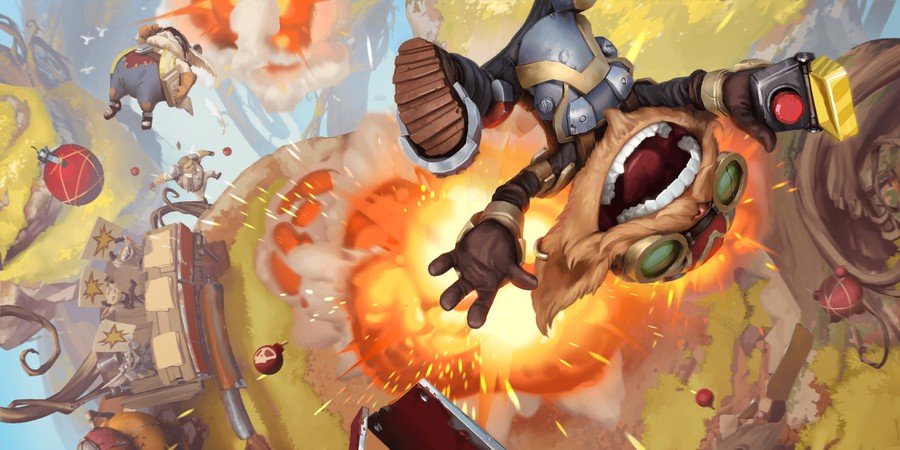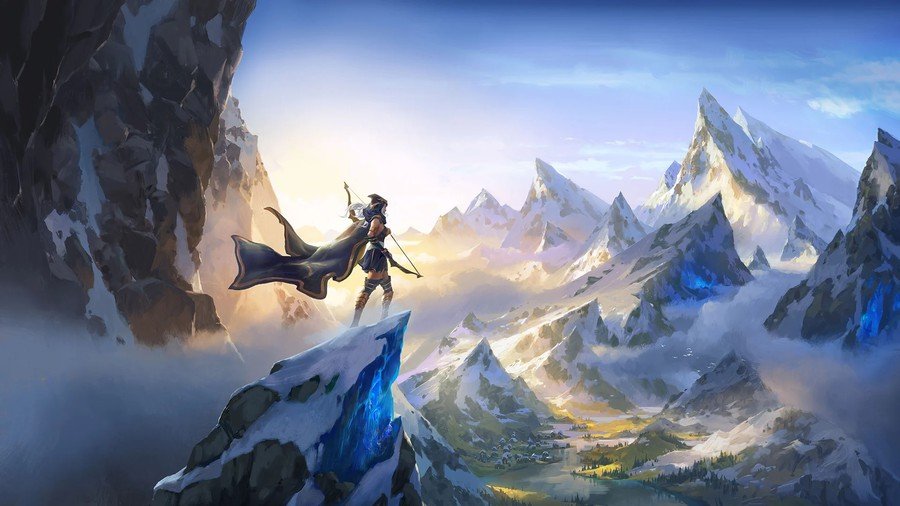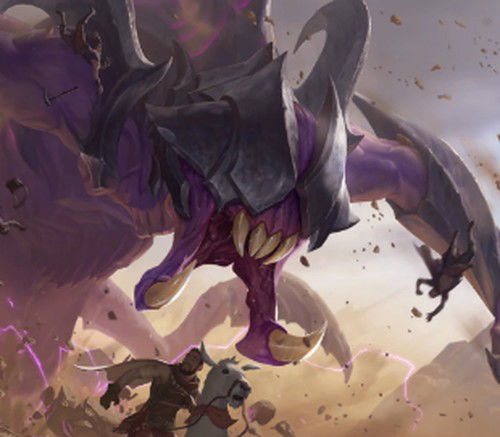Introduction
The “Beyond the Banlewood” Expansion is impacting Legends of Runeterra (figuratively and literally) at levels that perhaps none of us could have predicted.
With the addition of two new keywords and four new champions to debut the region, plus another five champions for other regions and the multi-region cards, it was clear that the expansion could have a huge influence on the game.
And now, after three weeks and with the metagame starting to stabilize, we can see that the region will impact much more than just decklists: some aspects of the region have the potential to completely break the competitive landscape of Legends of Runeterra .
In this article, we will look at one of them: randomness.
Randomness in Runeterra
In the world of strategic card games, it's no surprise that the more random the effects of the cards, the less “skill” is involved in winning or losing.
The less you can predict your opponent, especially in championships “open deck-list”, that is, where you can see the cards your opponent takes in the deck at the time of confrontations, the less real influence you can have as an individual in the result of the match. Randomness delivers the unpredictable and uncontrollable aspect to games, and when this occurs in strategy games, we have to question where each player's personal skill comes in and the “RNG” (Random Number Generator) ends.
In Legends of Runeterra, overall, there are few wonderful mechanics that rely on randomness. Perhaps the most common examples are cards like Tri-Beam Improbulator, Make it Rain and Petty Officer, which bring random effects in controlled environments.

In each of these cards, the random effect is within a controlled group, reducing the variance of possibilities that the cards can bring. Make it Rain almost always hits their targets; Tri-Beam Improbulator can be controlled in value to bring in the best followers; Petty Officer Summons only cost 1 units, etc. This makes randomness not negatively impacting the games, as these cards do not have such a large effect variance as what we are seeing now with some new Bandlewood units.
The community itself strongly discourages and criticizes these effects because of the game's philosophy: When it was created, it wasn't based on them to generate entertainment or popularity. Through posture and behavior, the creators of Runeterra, RiotRubinZoo and RiotUmbrage, showed that they prefer not to bring as many of these random aspects to Runeterra by delivering a few strong cards with randomness in each expansion.
And the competitive scenario continued in this position: The voices of great influence in the community reinforced, with each expansion, their discontent with cards that contained too much randomness. And this was heard and echoed in every video and live program to “react” to the new cards, causing the game to remain very moderate with such effects.
However, Bandlewood changed everything. With its 126 new cards, “Beyond the Bandlewood” is the largest expansion of Legends of Runeterra to date, and the timing of its inclusion, in addition to the sheer number of cards, bewildered players for quite some time. With the World Championship coming up, a lot of attention turned to the event and to the particularities of some decisions of the event itself. Because of this, Bandlewood's impact could not be fully measured by the players - until now.
The Guilty
Among the new mechanics, one stands out for its randomness: “Manifest”.
“Manifest”, which lets you choose one of three randomly generated cards in your hand, is present in four cards in the game today - and all four are being included in championships, within several decks.
Of these four, only one is attached to an archetype, which is Bandle City Mayor, linked to the archetype of The Bandle Tree, one of the strongest archetypes of the season.

The cards also have reasonable values of cost, power and life in proportion to the effect they bring: they are units that do not decrease the overall power of a deck, unlike “Invoke”, which is present in units with low combat strength and blocking. “Invoke” could also be considered its predecessor for letting you choose one of three cards, in this case, celestial.
To balance the value of generating one more card in the hand, Riot Games made the summoning units a little more expensive and a little weaker, which is not so present in Bandlewood both in its base and due to support cards from the region. Poppy and Yordle Smith can make any unit extremely powerful “Manifest” for a small cost. This makes the units themselves even more valuable, and not just good for the effect they bring.

And speaking of the effect they bring, the Loping Telescope is the greatest culprit in the randomness of the expansion. The card, which has the effect of bringing a choice of a celestial card that costs 3 or less, a multi-region follower, or an epic card, has brought anxiety to competitive players. It's almost impossible to play around what it can bring, as it has a vast choice of cards to show to the opponent.

It encompasses perhaps the largest randomness group involved in all of Runeterra, and on top of that, the opponent has the choice. There are 158 epic cards, 11 multi-region followers, and 8 celestial cards costing 3 or less, totaling 177 cards that a player will have to play around if their opponent uses Loping Telescope. It can even bring itself, causing a loop of choices that can make any competitive player dizzy.
The Bandle Tree itself has its moments of randomness, as it brings a random follower from a new region each round. At this point, every competitive player starts to ask himself: "Didn't we go too far?"
The Competitive
Over the course of the past two weeks, we've been able to see the true impact of Bandlewood on community tournaments and official tournaments. It soon became clear that some random effects were negatively affecting the game, and players turned to social media to voice their questions. In one of these, the player “SirTurmund” highlighted the main moments of randomness:
In a match in the Europe qualifiers of the Legends of Runeterra World Championship, the player “Alanzq” made the following sequence of randomly generated cards:
Wiggly Burblefish > Heavens Aligned > Unspeakable Horror > Lunari Priestess > Falling Comet.
At other times, the player SirTurmund highlights Bandlewood, in particular Loping Telescope, The Bandle Tree and Bomber Twins as sources of unpredictable randomness:
“Here is an example of me winning a game because of looping telescope into Judgement. Don’t see how you can expect someone to play around every epic card in game”
- SirTurmund
You can check it out:
The player, streamer and caster MegaMogwai algo gave his two cents about the card:
“I dunno about you, but I don't really bother "playing around" this card”
- MegaMogwai
Competitively, we can see that such plays are not the player skill demonstrations we like to see when watching championships. And for competitive players themselves, losing to a randomly generated card can not only be frustrating, but also end up with opportunities that require months of study and effort.
Losing a championship can mean missing out on life-changing rewards, such as the over $200,000 given out to the top 8 of the Legends of Runeterra World Championship. And all due to a randomly generated card.
Conclusions
We can conclude that some random effects, in controlled environments, bring that emotion to our games that can influence the fun factor, which is the main point of a game.
But let's not forget the balance between such effects: For a game that has been cautious with its random effects, it might be time for the Legends of Runeterra developers to stop and reflect on this aspect of the current state of the game, what if is that this is impacting the players' experience more negatively than positively.
This was another article of mine, talking about different aspects of the digital phenomenon Legends of Runeterra!
Thanks for reading!














— 评论 0
, 反应 1
成为第一个发表评论的人